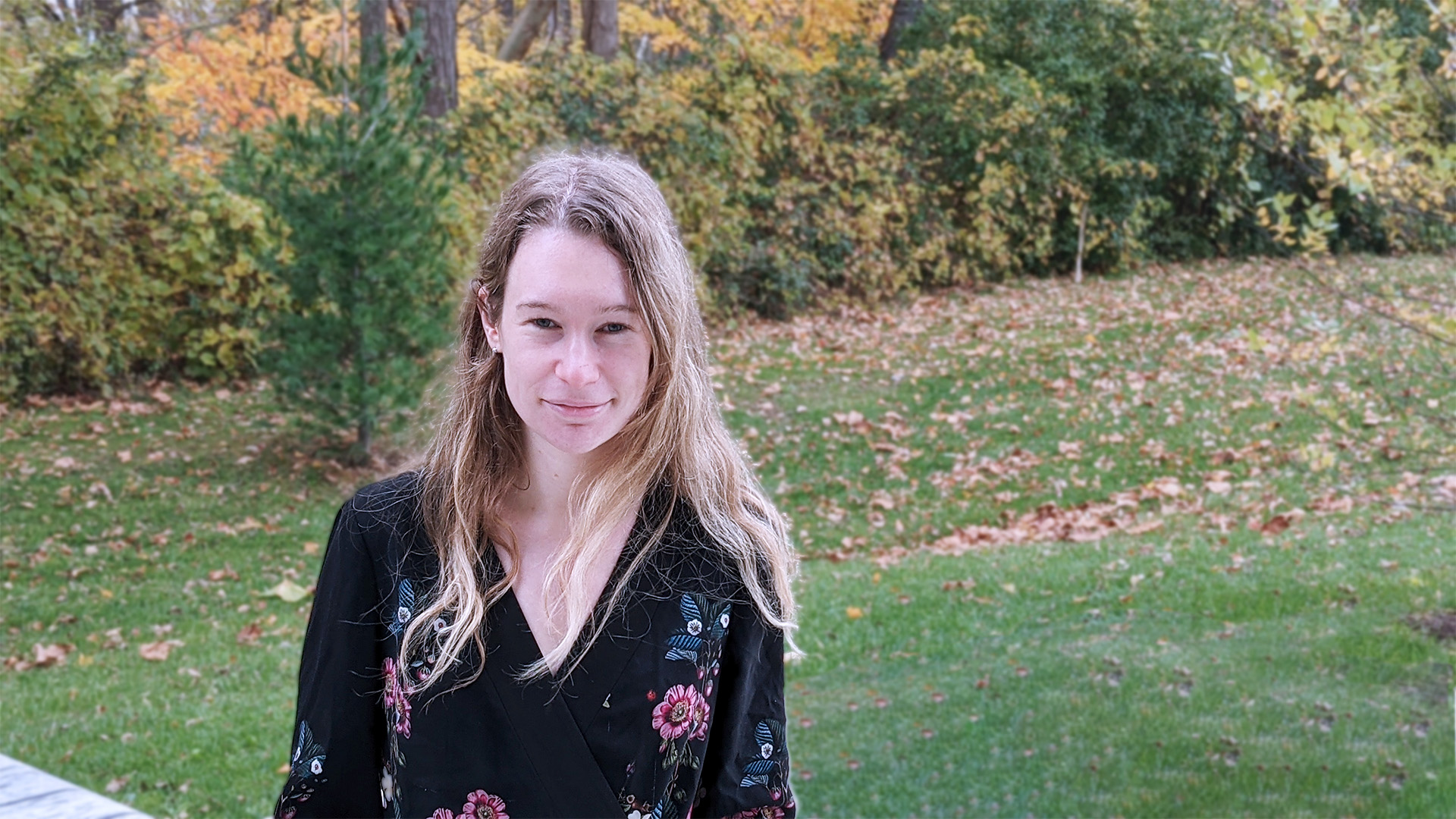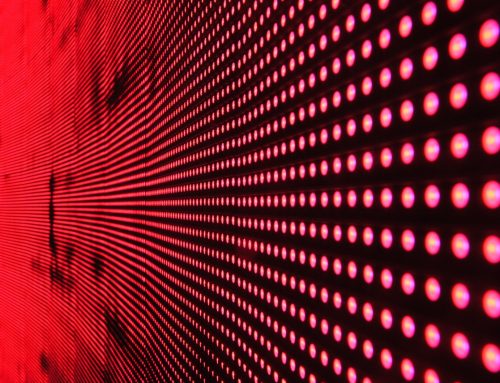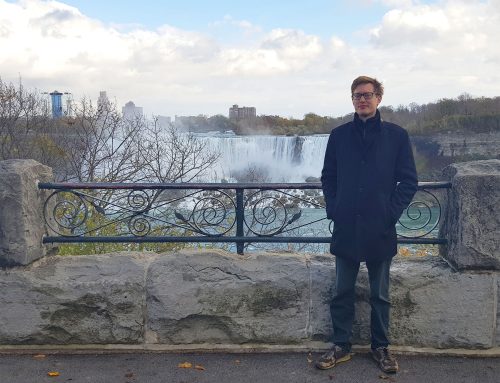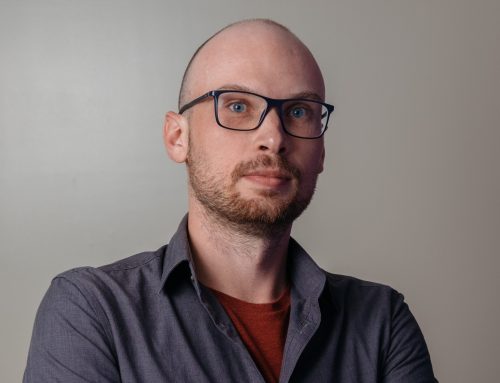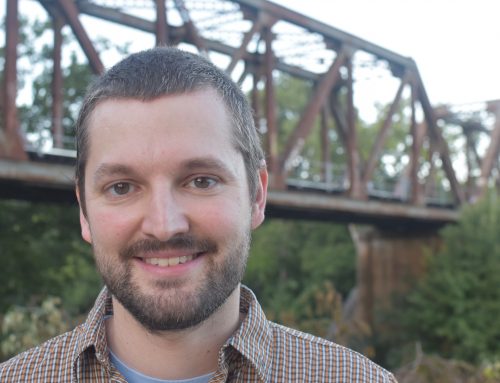Emily Adlam is in her first year as a postdoc at the Rotman Institute of Philosophy, and recently completed a virtual interview with Rotman Associate Director, Eric Desjardins. She has research interests in foundations of quantum physics and philosophy of physics, and is working with core faculty member Francesca Vidotto. Her fellowship is jointly funded with the Rotman Institute and a research grant project, the Quantum Information Structure of Spacetime–an interdisciplinary initiative in Quantum Information and Quantum Gravity, bringing together theorists, experimentalists and philosophers.
Can you tell us a little about your educational background and what drove you to become a philosopher?
I studied physics and philosophy at Oxford, then did a PhD in quantum information and foundations at Cambridge. It became clear to me that a lot of developments in contemporary physics tie into long-standing philosophical problems in really interesting ways, so I now work on issues somewhere in between physics and philosophy which will hopefully clarify conceptual problems in quantum physics and inform the development of future theories.
What specific project(s) are you working on at the moment?
I’m very interested in approaches to physics which go beyond the time evolution paradigm – for example, models with laws which are temporally non-local, retrocausal, or which apply `all-at-once’ to the whole of history in an atemporal way. I’m working on several projects investigating the consequences of these developments for philosophical topics like lawhood and determinism. I’m also looking into recent developments in the quantum clocks research programme, which involves studying the relationships between reference frames established using clocks which are quantum rather than classical – I’m trying to understand what these results tell us about the nature of time.
Why do physicists need to go beyond the time-evolution paradigm?
Modern physics postulates a large variety of laws which don’t look like time evolution laws – for example, the Einstein equations of General Relativity, the constraint-based equations that appear in Lagrangian methods, various approaches to quantum gravity, and new possibilities like retrocausality and all-at-once models which have been raised as possible solutions to the interpretative problems of quantum mechanics. In light of these developments, we have good reasons to seriously reconsider the simple heuristic picture of the universe as something like a computer which takes in an initial state and evolves in forwards in time; taking the laws postulated by modern physics seriously leads to a very different sort of picture.
What is a quantum clock? Can classical clocks be used in studying the relationships between reference frames?
A quantum clock is simply a clock which is modelled as a quantum system rather than a classical one, so it can enter into typical quantum behaviours such as entanglement and superposition. The claim made by people working on quantum clocks is that quantum mechanics is universal and therefore all clocks are ultimately quantum clocks, so we need to study quantum clocks in order to properly understand reference frames. I myself belong to the camp which is sceptical of the universality of quantum mechanics and therefore investigating the validity of these claims is one important part of this project.
When you are not busy being a philosopher, what do you like to do?
Playing the violin, blues dancing, acroyoga, and writing novels.
What novel(s) have you published already?
My agent recently sold the rights to my novel ‘The Last Counterfeit’ but so far only in Italian, so English-speakers may have to wait! The novel is about a family who make counterfeit money and who therefore face an existential crisis when the government decides to phase out the use of cash.

